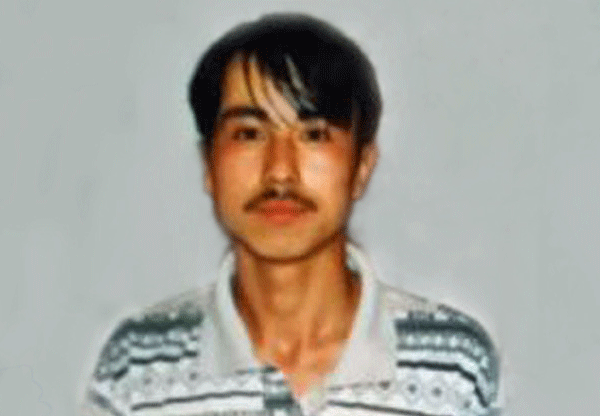
2014-02-05
A young Uyghur journalist and blogger, who disappeared during the riots in the capital city of northwestern China's Xinjiang region in 2009, has been convicted on charges of separatism and held in prison for the last four years, according to his family who spoke about his fate for the first time.
Niyaz Kahar, who ran the popular Uyghur-language website Golden Tarim, was taken into custody on or around July 26, 2009, just three weeks after ethnic riots tore across Urumqi on July 5, leaving at least 200 dead according to official figures.
Though Kahar’s family at first feared he had been killed in the riots, they later learned he had been detained by police, Kahar’s mother Mariamkhan told RFA’s Uyghur Service.
“After my son Niyaz disappeared in July 2009, we heard nothing about him until the autumn of 2010,” Mariamkhan said.
Traveling to Urumqi from the family home in Yokuri Aqyer village in Kumul city, in the easternmost part of Xinjiang, Mariamkhan searched for him “everywhere, in police stations, government departments, and his work unit, but nobody knew anything about him,” she said.
“At first, I thought that my son had probably been killed during the ‘July 5 incident’ in Urumqi. However, one of my son’s close friends told me that he had last seen Niyaz on July 26.”
Informed by authorities a year later that Kahar had been handed a 13-year sentence in a closed court session and had already been sent to prison, Mariamkhan and her daughter went again to Urumqi to ask a staff member at the Urumqi Municipal Court why her son had been arrested.
“He only told us, ‘Don’t ask any more questions about him. He is a political prisoner now,’” she said.
No one has reported about Kahar's case since he was detained in July 2009.
“Nobody has asked any questions about my son’s case, including Niyaz’s workmates, classmates, friends, and even his girlfriend," Mariamkhan said. "Everybody was afraid to inquire about his case because he is a political prisoner."
Uyghur exile groups say thousands of Uyghurs have been reported missing since the 2009 violence, most of them taken into custody by authorities in large-scale sweep operations.
'Illegal news'
Kahar’s sister Nurgul, also speaking to RFA, added, “The Urumqi Municipal Court staff said, ‘Your brother published illegal news and propagated ideas of ethnic separatism on his website. He was charged with the crime of splitting the nation.’”
At the end of 2010, Kahar’s family, including his partially paralyzed father, were allowed a 15-minute visit at Shikho (in Chinese, Wusu) prison outside Shikho city in the far north of Xinjiang, his mother said.
“My son was very weak and thin and could not say a word, only weeping silently.”
Previously an “energetic, active, and happy person,” Kahar had completely changed, his sister added. “He had lost his precious youth and positive frame of mind.”
“Our hearts broke when we saw him,” she said.
Kahar’s father cried out and fell unconscious on seeing his son, Kahar’s mother said.
“Afterward, his paralysis grew worse day by day, and he finally passed away last year.”
“We haven’t told this bad news to our jailed son,” she said.
"My heart is full of grievances and complaints. I hope somebody shows concern about my son’s situation. His normal life and his future are already destroyed. His father was sick and died for this reason. As a mother, I am appealing to everyone over my son’s situation.”
Born in 1975 in Yokuri Aqyer village near Kumul, Niyaz Kahar studied literature at Xinjiang University from 1994 to 1999. He then worked at a local newspaper before going on to establish the Uyghur-language website Golden Tarim, which featured articles on Uyghur history, culture, politics, and social life.
His stories were said to have been especially well-received by the younger generation of Uyghur readers.
Uyghurs in Xinjiang say they have long suffered ethnic discrimination, oppressive religious controls, and continued poverty and joblessness, blaming the problems partly on the influx of Han Chinese into the region.
Chinese authorities blame outbreaks of violence in the region on Uyghur "terrorists," but rights groups and experts say Beijing exaggerates the terrorism threat to take the heat off domestic policies that cause unrest or to justify the authorities' use of force against the Uyghur minority.
Reported by Eset Sulaiman for RFA’s Uyghur Service. Translated by Eset Sulaiman. Written in English by Richard Finney.
